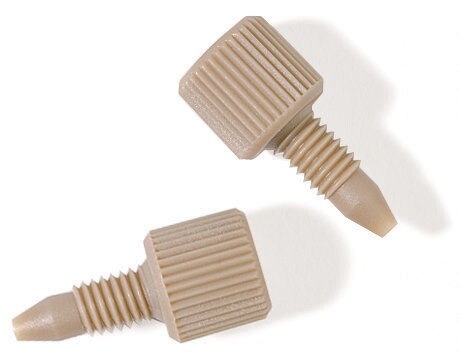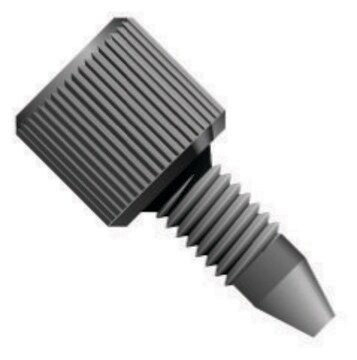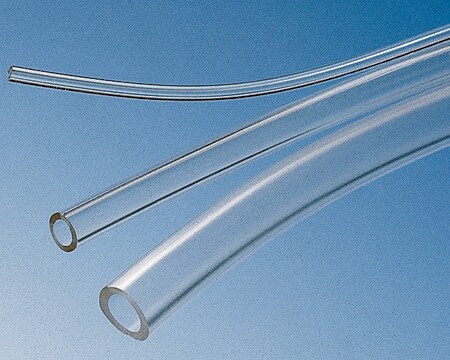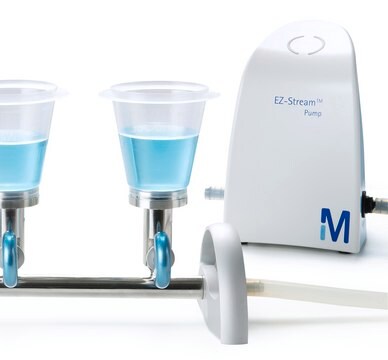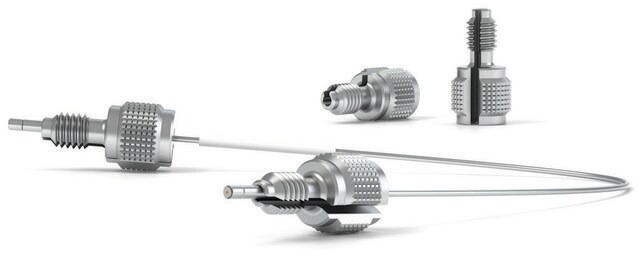Z226661
PEEK Tubing
L × O.D. × I.D. 10 ft × 1/16 in. × 0.010 in., blue, max. pressure 6000 psi
Synonym(s):
PEEK Tubing
Sign Into View Organizational & Contract Pricing
All Photos(1)
About This Item
UNSPSC Code:
41115700
eCl@ss:
32119290
NACRES:
SB.52
Recommended Products
parameter
6000 psi max. pressure
L × O.D. × I.D.
10 ft × 1/16 in. × 0.010 in.
color
blue
Looking for similar products? Visit Product Comparison Guide
General description
Polyetheretherketone (PEEK) tubing has become a popular replacement for stainless steel tubing in various places in the HPLC system. It is especially useful when contact between the sample and metal components must be avoided, such as when working with metal complexing agents or certain biochemical compounds. PEEK tubing also offers other advantages: it is flexible, easy to cut, has excellent mechanical stability and chemical compatibility, and can be used to 100 °C. Tetrahydrofuran (THF), dimethyl sulfoxide (DMSO), methylene chloride, and concentrated nitric and sulfuric acids should not be used with PEEK tubing. Our 1/16 in. PEEK tubing is color coded for easy identification of the internal diameter. 10 ft./3 m length.
Application
Polyetheretherketone (PEEK) connecting tubing may be used as a solvent holder and as the fluid delivery duct while being immersed in a continuously flowing sample solution, in a liquid-liquid microextraction method termed as continuous-flow microextraction (CFME) for dilute analytes. It may also be used in a flow through cell, in experiments performed to measure the solubility of zinc oxide from 150 to 300°C.
Choose from one of the most recent versions:
Certificates of Analysis (COA)
Lot/Batch Number
Sorry, we don't have COAs for this product available online at this time.
If you need assistance, please contact Customer Support.
Already Own This Product?
Find documentation for the products that you have recently purchased in the Document Library.
Customers Also Viewed
New measurements of the solubility of zinc oxide from 150 to 350 C.
Pascale B
Journal of Solution Chemistry, 31 (12), 947-973 (2002)
Liu et al.
Analytical chemistry, 72(18), 4462-4467 (2000-09-29)
A novel liquid-liquid microextraction method, that we have termed continuous-flow microextraction (CFME), is described. In a 0.5-mL glass chamber, an organic drop (1-5 microL) is held at the outlet tip of a polyetheretherketone (PEEK) connecting tubing which is immersed in
Our team of scientists has experience in all areas of research including Life Science, Material Science, Chemical Synthesis, Chromatography, Analytical and many others.
Contact Technical Service

